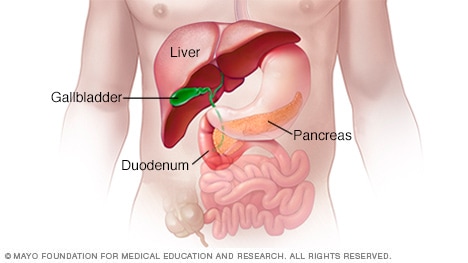We have covered the fact that fats are a crucial building block for the healthy functioning of cells in the human body here before. But even if you are taking in healthy fats, did you know that you may not be digesting and absorbing them? Supporting healthy digestion is crucial if you want to avoid becoming deficient in fatty acids. Specifically, the acidity of the stomach and the gallbladder both play important roles in the digestion of dietary fats.
The stomach is a highly acidic environment (with a pH of about 1.5-3.0), as a result of gastric juices containing Hydrochloric Acid (HCl) being excreted into the stomach. There are a number of reasons for this high level of acidity: it kills bacteria and parasites, denatures proteins, and secretes gastrin into the bloodstream. It is also this acidity that triggers the release of pepsin (a digestive enzyme which beings the breakdown of proteins), as well as gastric lipase (the enzyme which aids in the digestion of triglycerides). Without enough acidity in the stomach, these enzymes are not available in enough of a quantity to breakdown the foods that we eat. We are then left with partially undigested food particles that are forced to move through the rest of the digestive system, wreaking havoc on our systems.
Furthermore, the gallbladder’s primary job is to aid in the digestion of fats. The gallbladder produces bile which emulsifies, or breaks down larger lipid globules into smaller ones that are more easily absorbed by the body. If a diet consists of bad fats or is low- to no-fat, the gallbladder does not trigger the release of bile. Therefore it can become viscous or build up in the gallbladder, leading to gall stones. Fats are then not properly broken down and continue to move through the digestive system. The liver is also left in a stressed out state and the individual is left deficient in the necessary fatty acids it needs for fuel.
When not emulsified, undigested fats can rancidify in the colon. The intestinal flora becomes disrupted, the cells of the colon become weak, and inflammation sets in. Such symptoms resulting from this may be gas, bloating, diarrhea, constipation, etc. Over time, this degradation of the intestinal environment can lead to disease (e.g., Irritable Bowel Syndrome, Crohn’s, Celiac Disease, Colitis, etc).
By focusing on eating a nutrient dense diet consisting of healthy fats, and ensuring that the stomach creates enough acidic gastric juices, digestion can be restored to optimal functioning. This is something that can be accomplished through Nutritional Therapy.
CAUSES OF FAT DIGESTION ISSUES
- Stress
- Poor quality diet
- Low levels of stomach acid
- Sluggish bile flow
- Decreased thyroid activity
- Gut dysbiosis
WAYS TO IMPROVE FAT METABOLISM
- Remove inflammatory fats
- Eat bile healthy foods (beets, citrus, & dark leafy greens)
- Support stomach acid levels
- Optimize hydration
- Incorporate MCT oil
- Use Ox bile/digestive enzymes



Recent Comments